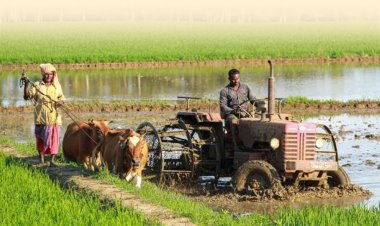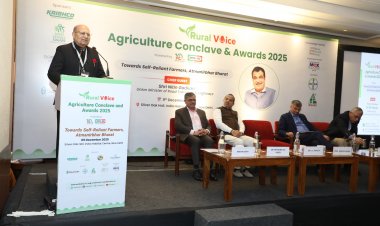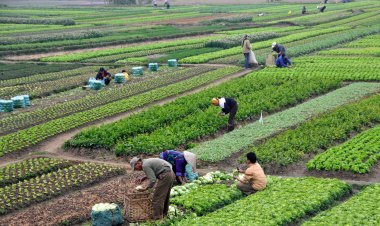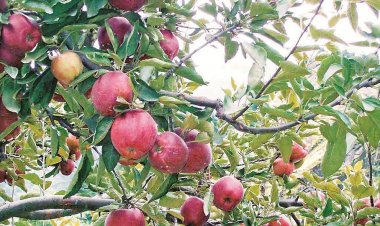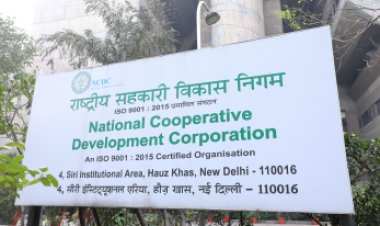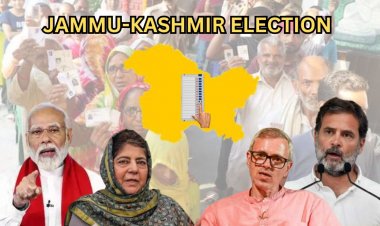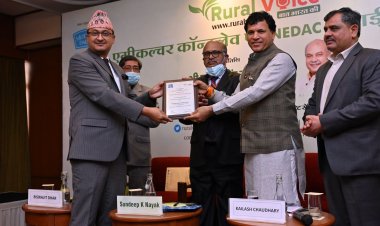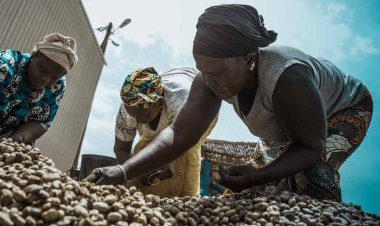Cooperatives can take us from Aashrit Krishi to AtmaNirbhar Krishi: Prof. Ramesh Chand
On the occasion of Farmers’ Day and its first anniversary, Rural Voice organized “Rural Voice Agriculture Conclave and NEDAC Awards 2021” in New Delhi on December 23. Kailash Choudhary, MoS for Agriculture and Farmers' Welfare, was the chief guest. The conclave had three discussion sessions, a booklet release and an award ceremony.
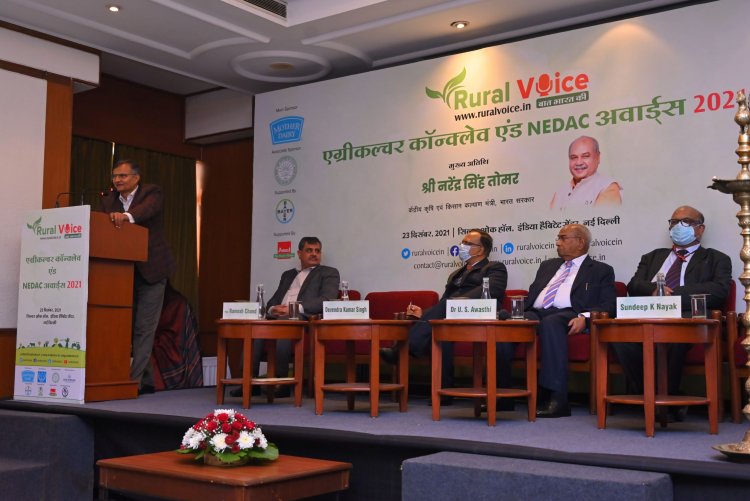
On the occasion of Farmers’ Day and its first anniversary, Rural Voice organized “Rural Voice Agriculture Conclave and NEDAC Awards 2021” in New Delhi today on December 23. Kailash Choudhary, Minister of State (MoS) for Agriculture and Farmers' Welfare, was the chief guest.
Choudhary said, “Rural Voice is bringing the voice of villages to the country.” Establishing his credentials as a “practising farmer”, he said, “The youth are shying away from agriculture. The government has to make the profession profit-oriented.”
“We talk about a rich merchant but a poor farmer,” said Choudhary. This stereotype of “poor farmer”, he felt, needs to be done away with.
After the Lamp Lighting ceremony, Harvir Singh, Editor-in-Chief of Rural Voice, acknowledged the contribution of eminent personalities from the field of agriculture and cooperatives that had gone into the evolution of Rural Voice.
Singh said, “The voice of agriculture and rural sector is not properly heard from the mainstream media.” And this was what necessitated the website ruralvoice.in and its English version eng.ruralvoice.in. Ultimately, said Singh, “the aim is to connect with 70 per cent of the population of India that is related to the rural sector.”
Agricultural and Rural Prosperity Through Cooperatives
The conclave had three sessions. The first session was on “Agricultural and Rural Prosperity Through Cooperatives and Farmers’ Collectives”. The participants were Prof. Ramesh Chand, Member (Agriculture), Niti Aayog; Sundeep K Nayak, DG, NPC; Devendra Kumar Singh, Secretary, Ministry of Cooperation; and Dr US Awasthi, MD, IFFCO. Harvir Singh was the moderator.
Prof. Chand complimented Rural Voice for its neutral stance. He said, “Voices in rural economy are usually biased. If you maintain your neutral stance, you will be successful in the long run.”
According to Chand, cooperatives are necessary because “markets are not always perfect and competitive. In the case of market failures, cooperatives are perhaps among the best options.” He lamented that when it came to size, even a cooperative as large as Amul did not figure among the world’s largest cooperatives.
But the biggest role of cooperatives, according to Chand, is in making the transition from Aashrit Krishi (dependent agriculture) to AatmaNirbhar Krishi (self-dependent agriculture).
Sundeep Nayak said that “the credit that flows into the cooperative system has drastically reduced.” This needs to be addressed by NCDC and NABARD.
The Ministry of Cooperation, said Devendra Kumar Singh, has a three-pronged focus: computerization of PACS; national policy on cooperatives; and mainstreaming of cooperatives.
Dr US Awasthi said, “We need to change our way of thinking. Not every model may be successful, but what matters is the way of thinking.” He concluded, “We need to adopt the Indian way to become successful.”
Agriculture and Technology
The participants in the second session on “Agriculture and Technology” were Dr RS Paroda, Chairman, TAAS and former DG, ICAR; Dr Trilochan Mohapatra, DG, ICAR; and Harsh Kumar Bhanwala, former Nabard chairman. Dr Biswajit Dhar from the JNU was the moderator.
Dr Mohapatra gave examples of how technology had helped agriculture move ahead. The CO-0238 variety of sugarcane and an improvement in the recovery rate of sugar boosted sugar production. Nano urea and drone technology are other major contributions.
Bhanwala floated the idea of a “fund of funds” for agriculture like the one we have for MSMEs. He also said there needs to be a collaboration of cooperatives with start-ups.
Dr Paroda said that we had a long way to go to benefit from technologies like genome-editing. He emphasized the need to make the youth “technology agents”. Besides, he said, if we are to achieve the Prime Minister’s dream of a 5-trillion economy, one trillion of it has to come from agriculture.
Award ceremony
A compilation of select articles from the Rural Voice websites was released as a booklet on this occasion. This was followed by NEDAC Rural Voice Awards 2021 given by MoS Choudhary.
The awardees included the Bank for Agriculture and Agricultural Cooperatives (BAAC), a state-owned specialized financial service provider established in 1966; Asia-Pacific Rural and Agricultural Credit Association (APRACA), which was established under the auspices of the FAO; National Cooperative Bank Limited (NCBL), which was established in 2003, as the only bank in the cooperative movement of Nepal at national level; and Baljit Singh Redhu, CMD, Lakshya Food for his contribution to agriculture and dairy.
Enabling Policy Environment for Agriculture and Rural Sector
The concluding session was held on “Enabling Policy Environment for Agriculture and Rural Sector”. The participants were Ajay Vir Jakhar, Chairman, Bharat Krishak Samaj; KC Tyagi, JD(U) General Secretary; Badri Narayan Choudhary, President, Bhartiya Kisan Sangh; Roshan Lal Tamak from DCM Shriram Ltd; and DN Thakur, President, Sahakar Bharti.
Jakhar said that the country needed an agricultural policy. But E&Y and Thornton policies won’t help. These consultants may be consulted but they should not be policymakers.
Badri Narayan Choudhary quipped, “When the turn of the farmers came to speak, neither the ministers stayed nor the officials.” This, he felt, was symbolic of the farmers’ neglect. Tamak spoke about the ease of doing agriculture. Tyagi said how Chaudhari Charan Singh wanted the farmers to learn how to speak and how to identify their enemies. And today, farmers have learnt to speak — a big advantage of the current farmers’ movement — and demand participation in every sphere.
DN Thakur congratulated Rural Voice for its success. As for policymaking, he raised questions: “Policy for whom? For farmers? For markets?...” He compared the policies to a feast that did not suit the guest. He said, “You may lay Chhappanbhog before me but what if I am diabetic?”
The conclusion was that it was essential to consult the party, viz. farmers, for whom the policy is being made.



 Join the RuralVoice whatsapp group
Join the RuralVoice whatsapp group

















